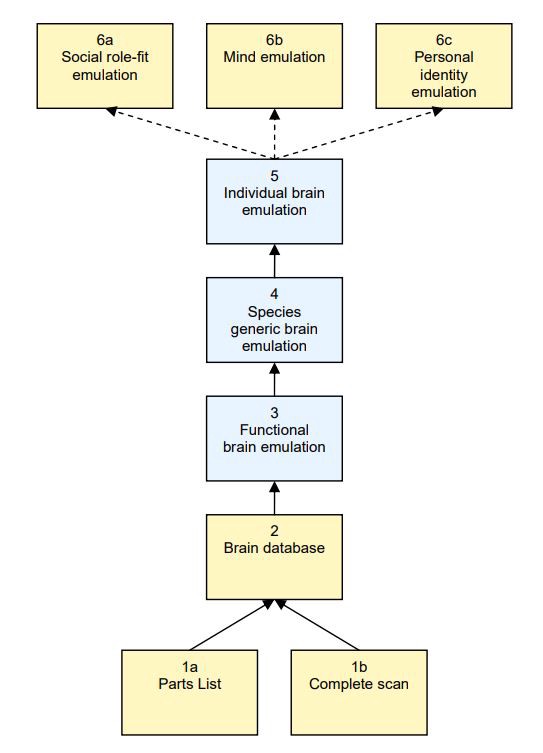From the translator: The material was translated under the impression of a lively discussion that unfolded in the comments to the post on technologies for potential life extension. Readers are more interested in transferring consciousness to a digital medium than in extending the life of a biological body, so I decided to continue the topic with a translation of a slightly futurological and non-objectivity material from the "Medium" portal. In this translation, the word "emu" is an abbreviation for "emulation"; I wanted to make an unfortunate joke and make a reference to the " war with the emu " in the title or even in the text itself , but, nevertheless, I left the term, and removed the references - this is, after all, a translation... I also note that Penrose and Hameroff's theory of the quantum nature of consciousness, to which there is a reference in the text, has not yet been confirmed as a whole , but I think it is good that it exists and is fueling the development of quantum computing.
Digitization of the mind (Mind uploading) is a procedure that involves the transfer of human consciousness to non-biological carriers. Personality traits, emotional traits, and personality memories can be immortalized. Digitizing people while preserving all their inherent features will have serious consequences for all life on Earth, since it will rebuild all the usual cycles in the economy, state, society and the life of every individual.
Feasibility: when will it be possible?
The modern information multiverse, where people create accounts on social networks, in essence, substituting for their personalities, in fact, is based on the digitalization of the mind, so far in an indirect form. Full digitalization of the mind is associated with the generation of a separate consciousness. At the moment, there are doubts about the very feasibility of this: can a silicon chip be a carrier of consciousness, what does this mean from the point of view of the dualism of soul and body, and also what ethical problems arise for the participants in the experiment. The risks to participants, especially early in the development phase, can be significant as the process is not yet perfect.

, , 2045 , , , , . , , . , – , . . , , .
, , , , . , , , , .
( ) , , . , . -, , . , ( – «» - . .) , , .
, , « », « » , -. , , « ». , , , .
, , . , Nectome (Regalado 2018):
. , . , .
, , , . , , .
, , . , - . , , - , , , ( , ). , , .
, . , , , .. .
, , . , , , , . , , , . .
. , , , , , ? , ?
, , . , , , , , ( , – . .). , , , .
. , . , , . , , , (Graziano 2019):
, , , .
, . , , , . , , , , , , . , , , .
Technological developments in the field of digitalization of the mind will turn into unprecedented changes. Advances in this area could accelerate progress in neurosciences, artificial intelligence and computing. Despite this, a painful transition awaits us. If it ends successfully, then the border between biological and technological being may become more and more unstable, eventually giving rise to creatures that can live either in the biological or in the virtual world, with all the inherent risks of such a situation.